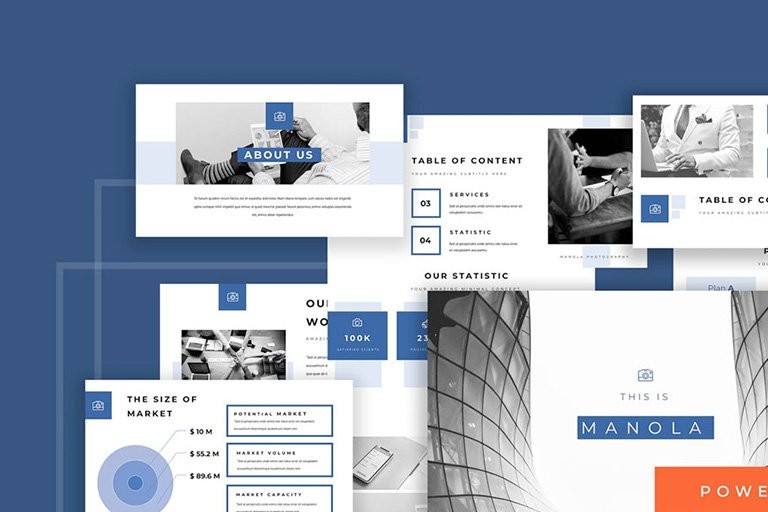
It’s a tool that every startup business or entrepreneur needs – a great pitch deck. A pitch deck is a presentation that you’ll use to help explain or showcase your product or service and potentially drives sales or investment. It needs to be polished and professional to do the job well.
Today, we’ll take a look at what a pitch deck is, how to make one, and how to establish a design that will wow people who come in contact with your new business.
We’ll also feature a few stunning pitch deck templates along the way, to help you get started fast.
What Is a Pitch Deck?
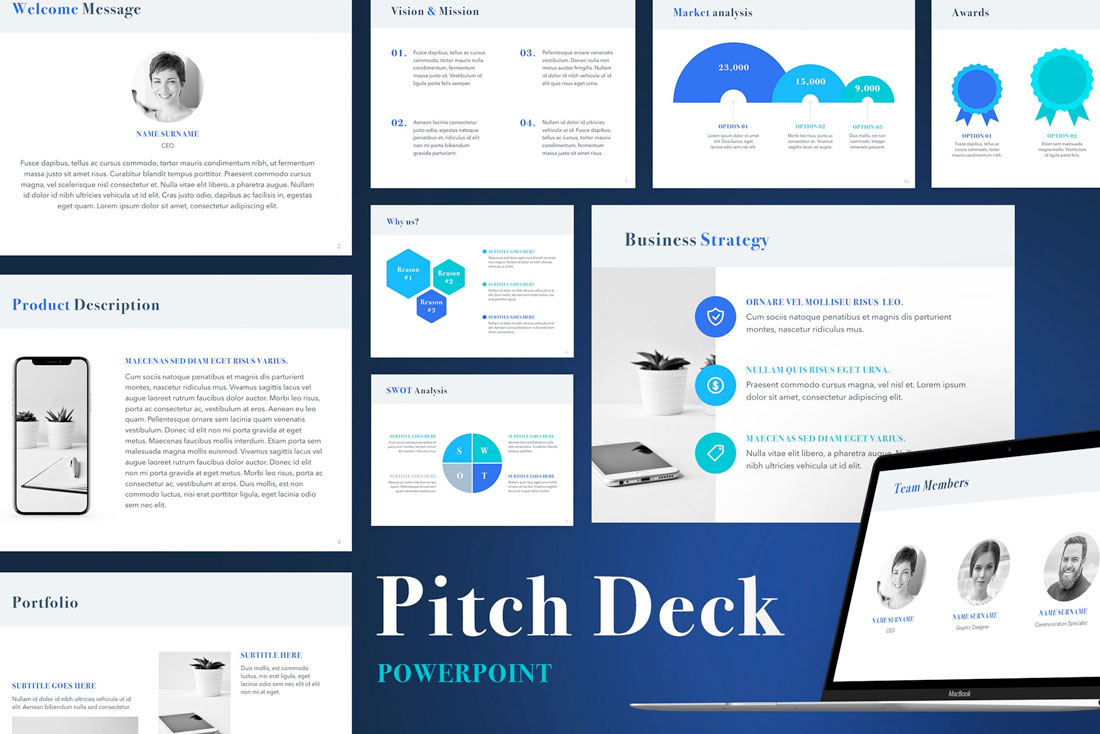
Remembering that users have limited attention spans, it is best to keep it short with just the most pertinent information.
A pitch deck is a short presentation that startups or entrepreneurs put together to help explain a business concept or idea in hopes of getting funding from investors. A pitch deck needs to be simple and easy to understand, professionally designed and include a distinct action for users (potential investors) to take.
According to Forbes, the average pitch deck has just 19 slides (so there’s no need to overthink it) and include three keys: clear and simple, compelling and easy to act on.
Further, a pitch desk should explain why your startup is important. You should outline a problem and potential solution to investors. Then back it up with information about your product and market, how you will use funding, financial information for investors and a clear call to invest.
While you don’t have a lot of room in 19 slides to show everything about your company, think of this is a quick sales opportunity. You may or may not present the pitch deck in person. Remembering that users have limited attention spans, it is best to keep it short with just the most pertinent information.
5 Things Every Pitch Deck Needs
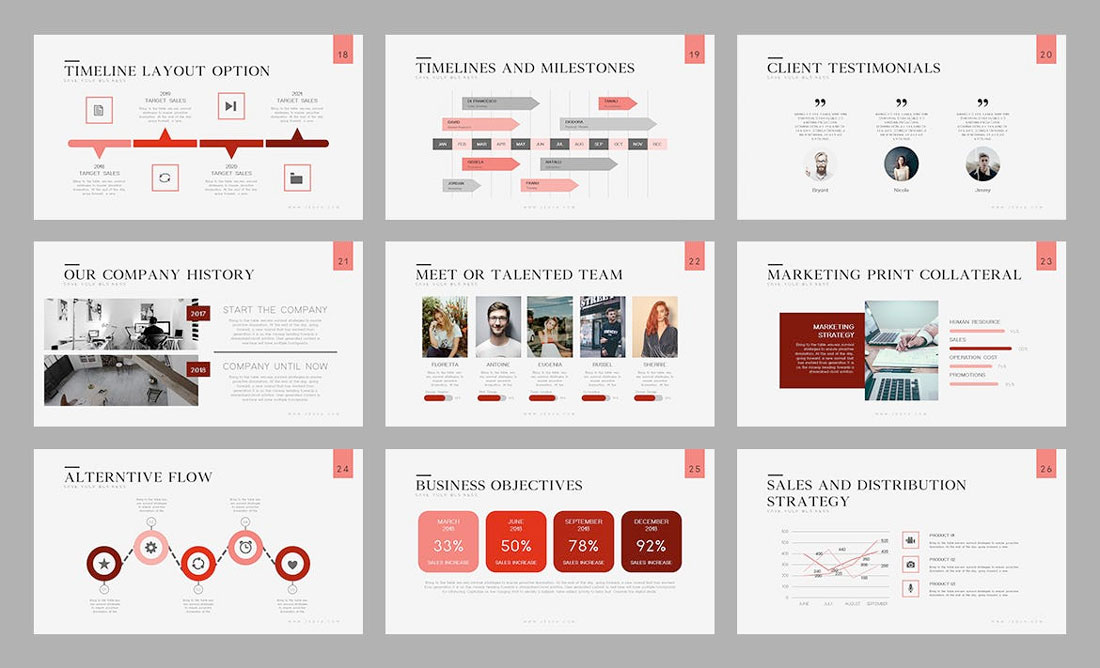
When it comes to creating the perfect pitch deck, where do you start? Great pitch decks have several things in common:
- Consistent and error-free design: Slides in the pitch deck must look like they belong together with a professional look and design that is free of errors. (Proofread it twice!)
- Something to hook the audience: Tell a story with words and visuals that engage people and make them want to be a part of your startup. You need to inspire them.
- Value proposition: What makes your company special, unique and valuable? What should investors expect as a return? Spell it out.
- Personality: A pitch deck should reflect your brand identity and personality.
- Template: Don’t reinvent the wheel every time you need to tweak or give your presentation to someone else. Create a template for your pitch deck (we have a few ideas below to help you get started and throughout this article) so that it’s quick and easy to prepare a presentation on the fly. You never know where the right opportunity might be waiting.
How to Create a Pitch Deck Design
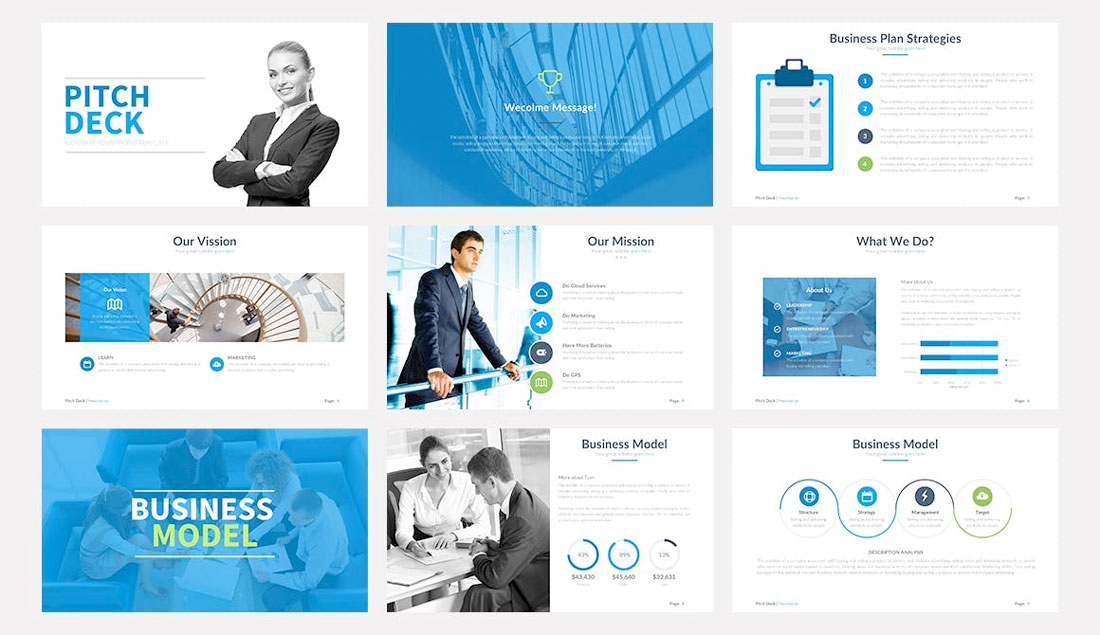
When it comes to creating a pitch deck, the design rules are pretty simple and consistent with many of the design concepts you’re probably already familiar with:
- Pick a consistent set of elements to use throughout the design. This includes a color palette, two to three typography choices and an icon set. Set styles and hierarchies for slides so that headers are the same throughout as are body text, photo use and other design elements.
- Limit the number of slides and feature one thing on each slide. Think of a slide as a single idea with an image and small text element. That’s all.
- Pick a design that works where you will be presenting. Will it be on a screen in a dark room? Or on a computer monitor at a desk? Or on an iPad with just one person looking on? Ensure that the design works in the place where you will show it.
- Save slides in a universal format, such as PDF, that will look and open like you expect.
Slides Every Pitch Deck Needs
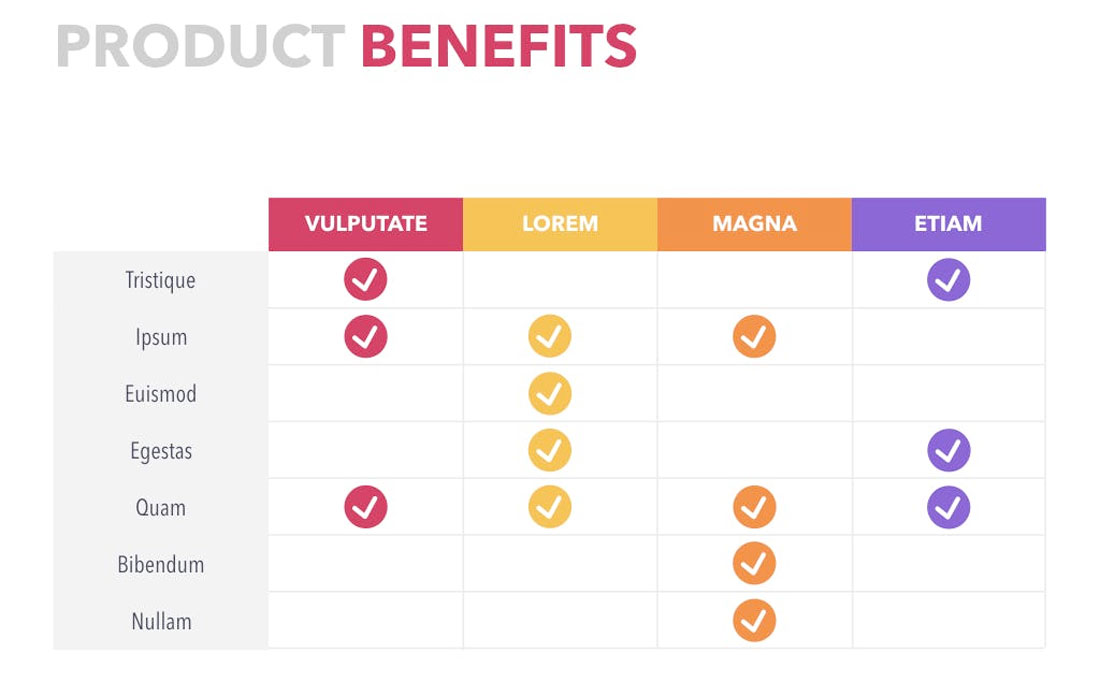
While every startup is different, there are a few slide types that almost every pitch deck needs to include. (Even if you aren’t using them all right now, it’s a good idea to plan for them as you grow and seek more funding.)
- Intro with company name/logo
- Vision and value proposition
- Problem that needs a solution
- How your company is that solution
- Target market and opportunities for growth
- Business model and roadmap
- Financials (with charts or graphs)
- Team members and bios
- Call for investment with how it will be used and benefits for investors
10 Pitch Deck Templates to Try
One of the quickest ways to do all of this – and create a stellar pitch deck – is with a template. Just pick a design that you like and customize it. Streamline the number of slides to just what you need and adjust colors, fonts and images to match your content.
A template can save you a lot of time, and there are so many professional and well-designed options out there, that there’s no reason not to try one. (Plus, the best pitch deck templates include slides for charts and graphs. Just fill in your data and share.)
Here are ten we like as inspiration for your pitch deck design.
Manola Presentation
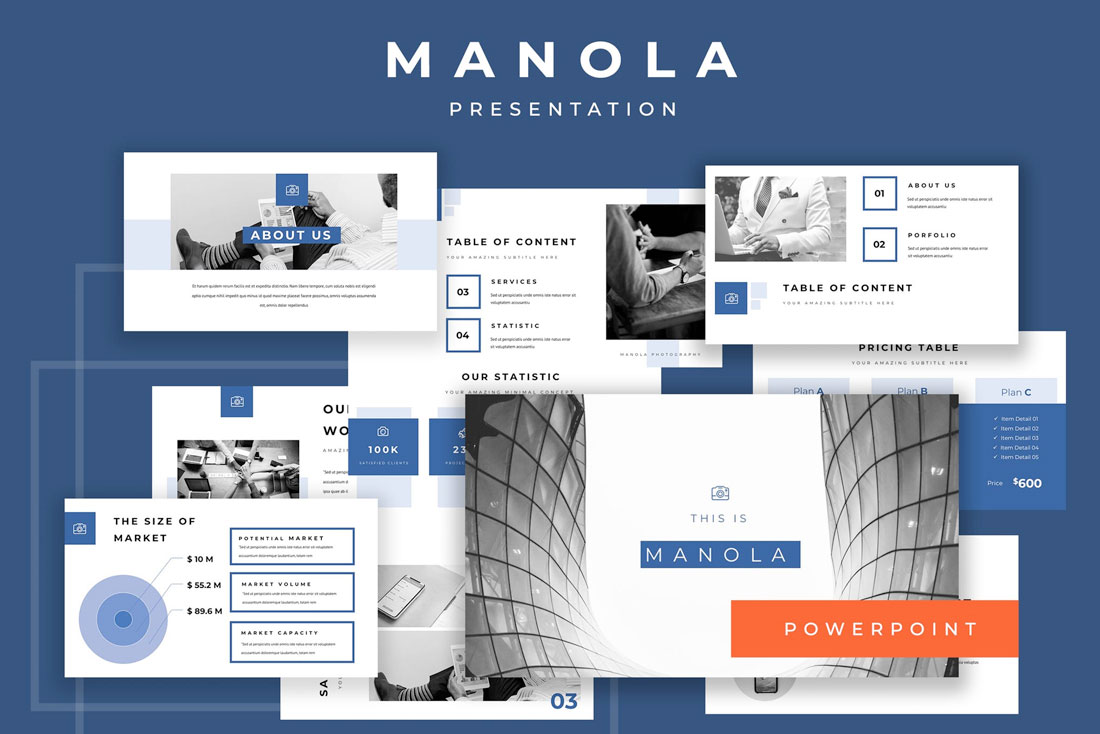
BISC Keynote Template

Business Pitch Deck Keynote

Startup Pitch Deck Template
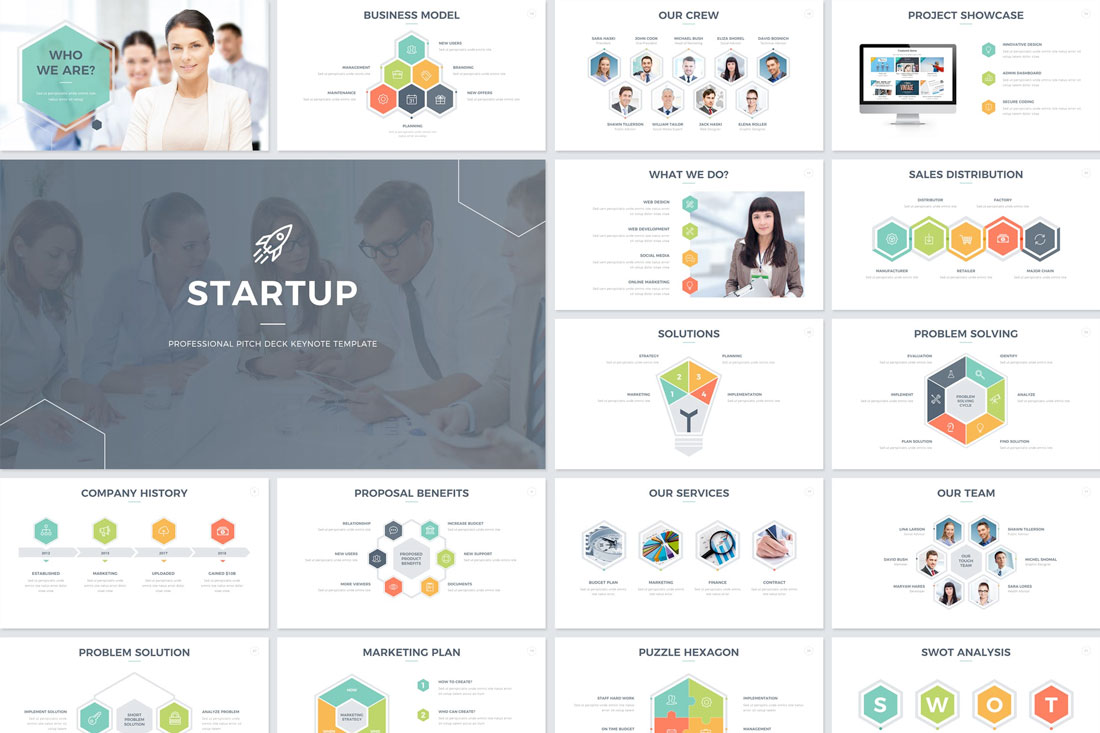
Pitch Werk
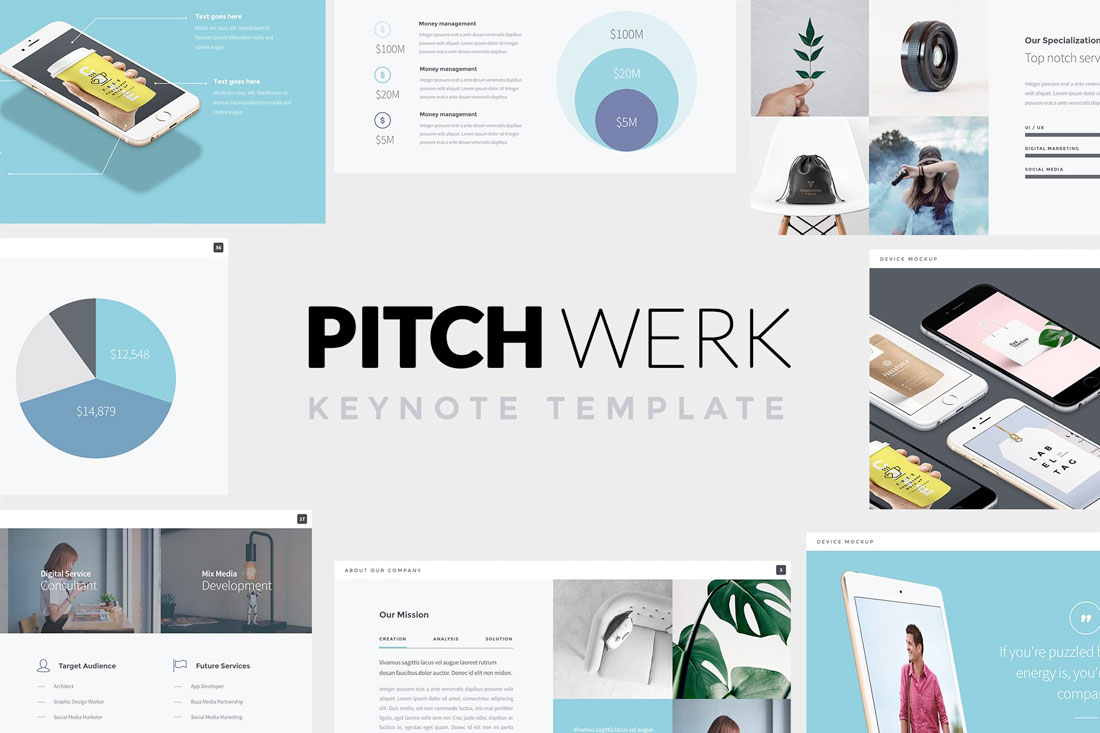
Starlax

Disava
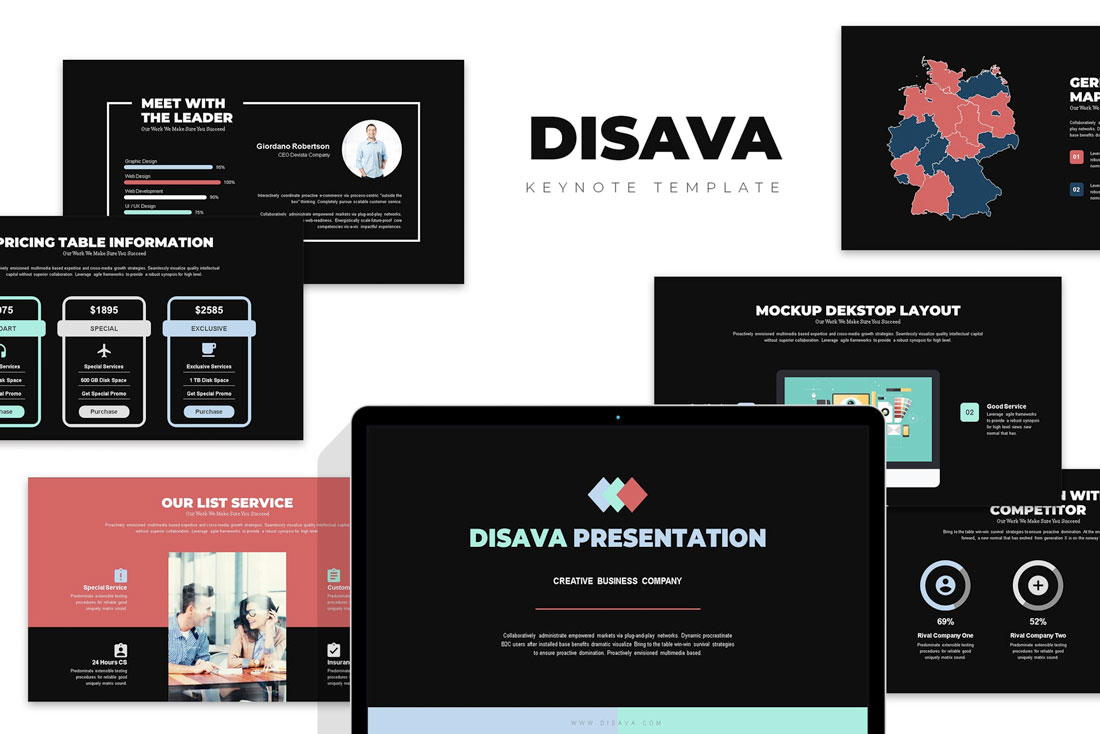
Corporate Business Plan
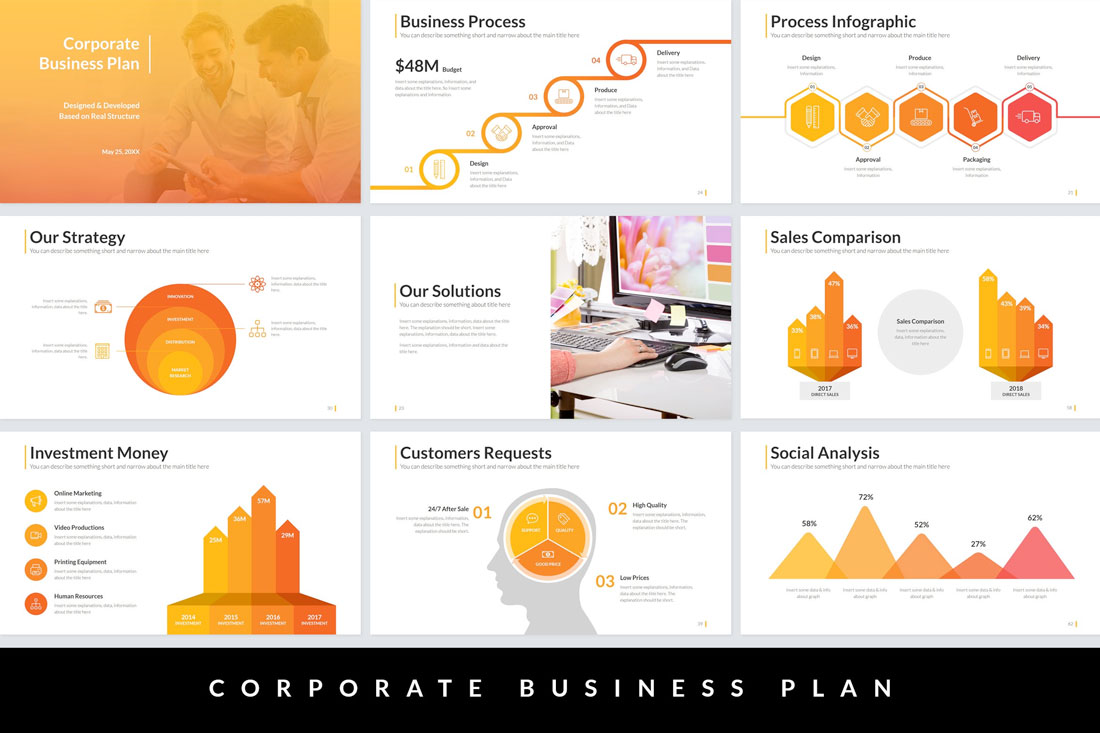
Union Keynote Template

Pitch Deck Google Slides

Secret: It’s Really Just a PowerPoint Template
If you haven’t figure it out yet, here’s the secret about pitch decks. They are really just PowerPoint (or Keynote) templates with a specific type of content included.
Need more inspiration? We have plenty more ideas for developing great presentations here.
PowerPoint Templates
Microsoft PowerPoint (PPT) is the go-to choice for creating presentations. This series shares tips and ideas for working with PowerPoint, as well as beautiful PowerPoint templates and themes to make your presentations look stunning.


